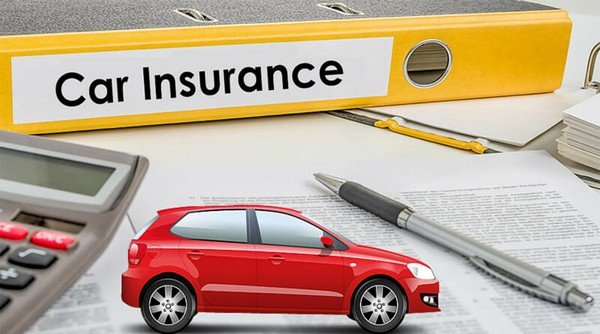Types of Car Insurance Coverage and Their Benefits
| Heading | Subheadings |
|---|---|
| Introduction | – Importance of having car insurance |
| – Overview of different types of car insurance coverage | |
| Liability Coverage | – Bodily injury liability |
| – Property damage liability | |
| – Benefits of liability coverage | |
| Collision Coverage | – Coverage for damage to your own vehicle |
| – Benefits of collision coverage | |
| Comprehensive Coverage | – Coverage for non-collision incidents |
| – Benefits of comprehensive coverage | |
| Personal Injury Protection (PIP) | – Coverage for medical expenses and lost wages |
| – Benefits of PIP coverage | |
| Uninsured/Underinsured Motorist | – Coverage for accidents with uninsured or underinsured drivers |
| – Benefits of uninsured/underinsured motorist coverage | |
| Other Optional Coverage | – Rental car reimbursement |
| – Roadside assistance | |
| – Gap insurance | |
| – Benefits of other optional coverage | |
| Conclusion | – Recap of different types of car insurance coverage |
| Frequently Asked Questions (FAQ) | – FAQ 1: Do I need all types of car insurance coverage? |
| – FAQ 2: What is the minimum car insurance required by law? | |
| – FAQ 3: Can I change my car insurance coverage at any time? | |
| – FAQ 4: Does my car insurance cover damage from natural disasters? | |
| – FAQ 5: How can I lower the cost of car insurance? |
Types of Car Insurance Coverage and Their Benefits
Car insurance is a vital aspect of responsible vehicle ownership. It provides financial protection against unexpected accidents, damages, and injuries. Understanding the different types of car insurance coverage is essential to ensure you have adequate protection in various situations. In this article, we will explore the various types of car insurance coverage and their benefits.
Liability Coverage
Liability coverage is the foundation of any car insurance policy. It protects you financially if you cause an accident that results in bodily injury or property damage to others.
Bodily Injury Liability
Bodily injury liability coverage pays for medical expenses, rehabilitation, and other costs if you injure someone in an accident. It also covers legal expenses if the injured party files a lawsuit against you.
Property Damage Liability
Property damage liability coverage covers the costs of repairing or replacing someone else’s property, such as their vehicle, if you are at fault in an accident.
Liability coverage is crucial because it protects your assets and helps you fulfill your financial obligations if you cause an accident.
Collision Coverage
Collision coverage protects your vehicle in the event of an accident, regardless of who is at fault. It covers the cost of repairing or replacing your car if it’s damaged in a collision.
Having collision coverage provides peace of mind, as it ensures that your vehicle will be repaired or replaced, reducing the financial burden on you.
Comprehensive Coverage
Comprehensive coverage protects your vehicle against non-collision incidents such as theft, vandalism, fire, or natural disasters. It covers the cost of repairing or replacing your vehicle in these situations.
Comprehensive coverage is especially important if you live in an area prone to theft, extreme weather conditions, or other non-collision risks.
Personal Injury Protection (PIP)
Personal Injury Protection (PIP) coverage, also known as no-fault insurance, is required in some states. It covers medical expenses, lost wages, and other related costs for you and your passengers
in the event of an accident, regardless of who is at fault. PIP coverage ensures that you and your passengers receive prompt medical treatment and financial support, regardless of legal fault.
Uninsured/Underinsured Motorist Coverage
Uninsured/underinsured motorist coverage protects you if you are involved in an accident with a driver who either has no insurance or insufficient insurance to cover the damages. This coverage helps pay for medical expenses, vehicle repairs, and other costs resulting from the accident.
Having uninsured/underinsured motorist coverage provides an added layer of protection and ensures that you are not left financially burdened due to an accident caused by an uninsured or underinsured driver.
Other Optional Coverage
In addition to the essential types of coverage mentioned above, there are several optional coverages that you may consider adding to your car insurance policy for added protection.
Rental Car Reimbursement
Rental car reimbursement coverage helps pay for a rental vehicle while your car is being repaired after an accident. This coverage ensures that you have alternative transportation during the repair process.
Roadside Assistance
Roadside assistance coverage provides services such as towing, fuel delivery, lockout assistance, and tire changes in case of vehicle breakdowns. It offers peace of mind knowing that help is just a phone call away.
Gap Insurance
Gap insurance covers the difference between the actual cash value of your vehicle and the amount you owe on a loan or lease. In the event of a total loss, where your car is deemed a write-off, gap insurance can help bridge the financial gap and prevent you from being responsible for a loan or lease balance.
These optional coverages provide additional benefits and convenience, allowing you to tailor your car insurance policy to meet your specific needs.
Conclusion
Car insurance is a crucial aspect of responsible vehicle ownership, providing financial protection and peace of mind. Understanding the various types of car insurance coverage available is essential to ensure you have the right level of protection for your needs. Liability coverage, collision coverage, comprehensive coverage, personal injury protection (PIP), uninsured/underinsured motorist coverage, and optional coverages such as rental car reimbursement, roadside assistance, and gap insurance offer different benefits and address specific risks. By selecting the appropriate coverage types, you can protect yourself, your passengers, and your vehicle from potential financial hardships in the event of an accident or other incidents.
Frequently Asked Questions (FAQ)
FAQ 1: Do I need all types of car insurance coverage?
The specific types of car insurance coverage you need may vary depending on your state’s requirements and your individual circumstances. However, it is generally recommended to have at least liability coverage, collision coverage, and uninsured/underinsured motorist coverage for comprehensive protection.
FAQ 2: What is the minimum car insurance required by law?
The minimum car insurance requirements vary from state to state. It is important to familiarize yourself with the legal requirements in your state and ensure you meet or exceed those minimums.
FAQ 3: Can I change my car insurance coverage at any time?
Yes, you can typically make changes to your car insurance coverage at any time. However, it’s important to consider factors such as policy renewal dates, potential penalties, and any specific requirements or limitations imposed by your insurance provider.
FAQ 4: Does my car insurance cover damage from natural disasters?
Comprehensive coverage typically covers damage to your vehicle resulting from natural disasters, such as hurricanes, earthquakes, or floods. However, it’s essential to review your policy and confirm the specific coverage details with your insurance provider.
FAQ 5: How can I lower the cost of car insurance?
There are several ways to potentially lower the cost of car insurance, such as maintaining a clean driving record, bundling multiple






















